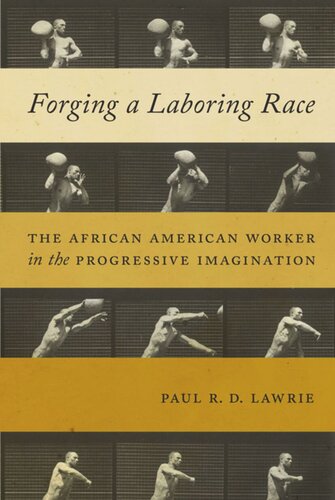

Most ebook files are in PDF format, so you can easily read them using various software such as Foxit Reader or directly on the Google Chrome browser.
Some ebook files are released by publishers in other formats such as .awz, .mobi, .epub, .fb2, etc. You may need to install specific software to read these formats on mobile/PC, such as Calibre.
Please read the tutorial at this link: https://ebookbell.com/faq
We offer FREE conversion to the popular formats you request; however, this may take some time. Therefore, right after payment, please email us, and we will try to provide the service as quickly as possible.
For some exceptional file formats or broken links (if any), please refrain from opening any disputes. Instead, email us first, and we will try to assist within a maximum of 6 hours.
EbookBell Team

0.0
0 reviewsForegrounds the working black body as both a category of analysis and lived experience
“How does it feel to be a problem?” asked W.E.B. DuBois in The Souls of Black Folk. For many thinkers across the color line, the “Negro problem” was inextricably linked to the concurrent “labor problem,” occasioning debates regarding blacks’ role in the nation’s industrial past, present and future. With blacks freed from the seemingly protective embrace of slavery, many felt that the ostensibly primitive Negro was doomed to expire in the face of unbridled industrial progress. Yet efforts to address the so-called “Negro problem” invariably led to questions regarding the relationship between race, industry and labor writ large. In consequence, a collection of thinkers across the natural and social sciences developed a new culture of racial management, linking race and labor to color and the body. Evolutionary theory and industrial management combined to identify certain peoples with certain forms of work and reconfigured the story of races into one of development and decline, efficiency and inefficiency, and the thin line between civilization and savagery.
Forging a Laboring Race charts the history of an idea—race management—building on recent work in African American, labor, and disability history to analyze how ideas of race, work, and the “fit” or “unfit” body informed the political economy of early twentieth-century industrial America.